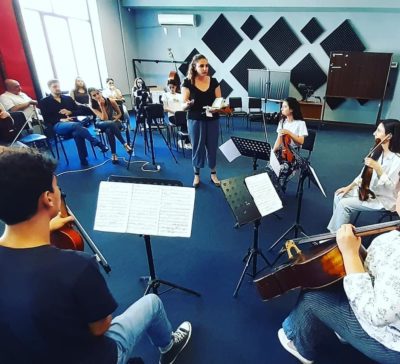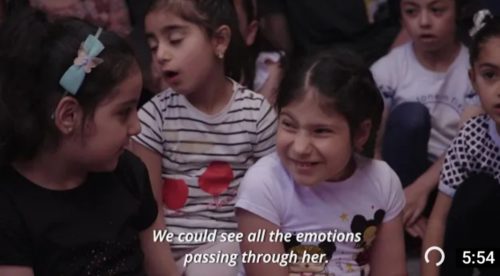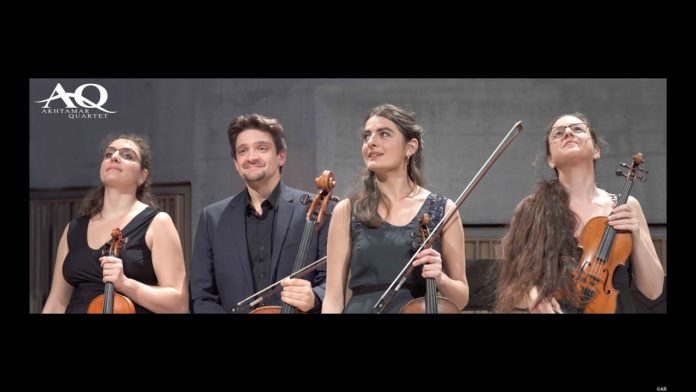BRUSSELS — Four young musicians from Brussels have just concluded a concert tour of Armenia, bringing the healing power of music to layers of the population still suffering the impact of war and pandemic disease. The Akhtamar Quartet made its musical and solidarity journey through Armenia in the first three weeks of June, performing 20 concerts (all free of charge) in 15 days.
In addition to concerts in conservatories and music schools, they played for soldiers who had been wounded and/or traumatized by the war in Karabakh (Artsakh), and for children of refugees from the devastated region. Their repertoire featured the Miniatures of Komitas, arranged for string quartet by cellist Sergey Aslamazyan, as well as music by Claude Debussy, Johannes Brahms and Eugénie Alécian, a pianist and composer from Paris whose niece is a violinist with the quartet. At the Komitas Chamber Music Hall in Yerevan they joined with the Cadence Ensemble, which plays Armenian music as well as Argentine tango.
The quartet, which found its inspiration in the Armenian Miniatures of Komitas, was founded in 2014 in Brussels and features violinists Coline Alécian and Jennifer Pio, violist Ondine Stasyk, and cellist Cyril Sinon. The ensemble was one of six chosen for the Tremplin Jeunes Quatuor of the Paris Philharmonic in 2016, and in that same year, they received the second prize at the Festival Musiq3 of Belgium. They have performed widely throughout Europe, and in 2020 released their first CD, with Komitas Miniatures and a quartet composed for them by Eugénie Alécian.

To document their experience in Armenia and share it widely, videographer Baptiste Cogitore joined the tour, filming short clips that he made available on YouTube, Facebook and Instagram. Cogitore is a journalist, author, documentary film maker and editor based in Strasbourg, France.
No matter where they went — Yerevan, Gyumri, Vanadzor, Dilijan, Yeghegnadzor, Jermak or Goris — they spread their message of solidarity with music. Their aim was to fill hospitals, schools and rural areas with music. At conservatories, for example in Yerevan, they offered a concert for students of string instruments, followed by a master class. The idea, Aram Talalyan explained, was to establish a connection between the students and their colleagues, no matter where they may be as international musicians. At the Boghossian Foundation, the students prepared a surprise concert for their European guests, all strings with a vocalist. In Echmiadzin, after their concert, 10 violinists came up on stage to play pieces by the beloved composer Komitas together with the quartet.
The music of the great Komitas provided the common language through which the artists from Brussels could communicate their moral support for people struggling to recover from catastrophe — Armenians who, because of the war and the Covid pandemic, had not had access to music for months. As one quartet member remarked while at the Harichavank monastery, they felt a great fellowship through Komitas, whose music Armenians know by heart.












